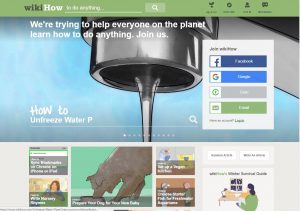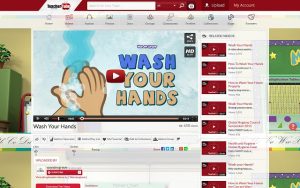Educational technology improves students learning experience and also provides more possibilities for teaching instructional design. In a modern classroom, a comprehensive understanding and proficient use of educational technology is an inevitable skill for every teacher. However, sometimes the management of technology could be tricky and problematic.
I think the biggest challenge in educational technology would be the reliability and technical problems.
Scenario I
Once I was in the French listening test (a digital test). I was so dedicated to tackling it down as I have prepared for that test for almost a year. Halfway through the exam, something went wrong. I could not hear anything from my headset, but I could still see the timer work well on my screen. I raised my hand and asked for help from the examiner. He came to check for a few minutes and found no problem, so he told me to pause the test and wait outside. I went out of the room with complicated feelings. Fortunately, they called the technician to come and fix the system problem. After a few minutes, I could continue with my test. It was a breathtaking and unforgettable experience.
As you can imagine, in some cases, the technology could be unreliable. When we are teaching in class or have an examination, it could spoil our plan and generate anxious feelings when we could not fix it instantly.
Scenario II
When working in community centers, we often met technical problems reported by teachers. They could be: the computer could not connect to the projector; the microphone and the speakers were working, or the computer had a problem connecting to the Wi-Fi. Especially when the IT department was having a day off, those problems could be mentally exhausting. The most common solution was to restart the computer, to double-check if the speaker was plugged in the wall outlets or electrical outlets, to reconnect the Wi-Fi.
The solutions to the technical problems are based on trails and errors. I could not know why restart the computer might be working. Maybe it was never logical. Personally, when I encounter some of those problems, I will seek help from the internet (Forum, Google, YouTube, etc.). Keep this in mind: you could not be the first person who met this challenging problem (if you are lucky enough, you could be). There is an answer waiting for you to find out.
Some recommendation for where to find advice and answers
1. Question-and-answer website:
-
-
- Quora (https://www.quora.com/profile/Quora)
- Yahoo answers (https://answers.yahoo.com/)
-

https://blog.swiftype.com/2017/08
All questions and answers are created by their users based on category. You might find your answers in others’ responses. But you should also pay attention to the content, as some of them are sponsor content or commercial promotion. And indeed, we should see the advice and answers with our judgements.
2. Wiki-style community:
-
-
- WikiHow(https://www.wikihow.com/Main-Page)
-

https://sscltech.com/2018/01/27/wikihow-to-do-anything/
It will provide detailed answers and how-to guides with its massive database. It includes every aspect you might want to know. Their authors are usually the experts or certified persons in that field.
3. Teaching and learning resources:

https://chrome.google.com/webstore/detail/teachertube/
-
-
- TeacherTube (https://www.teachertube.com)
- Annenberg Learner (https://www.learner.org)
- MERLOT (https://www.merlot.org)
-
You can find many free educational materials from different subjects for your online teaching. They have various forms of materials: Audios, videos, textbooks, and activity sheets. Ultimately, teachers share their teaching ideas and favourite resources with each other.
Question:
Who would you trust for reliable answers and advice?
Where do you usually find open learning resources?
Any ideas are welcome!



Leave a Reply
You must be logged in to post a comment.